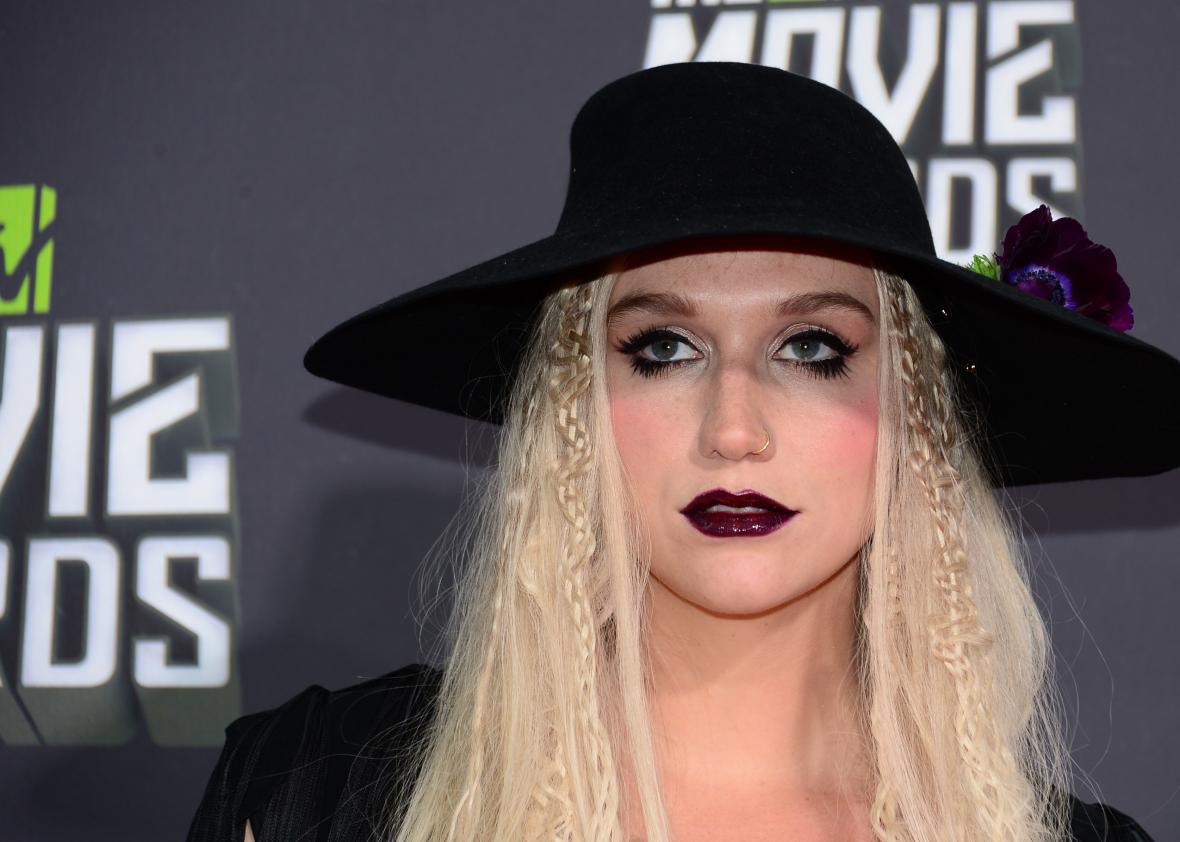Though it may cost her in career terms, Kesha is pushing ahead with her lawsuit against top-tier producer Dr. Luke, who she alleges sexually assaulted and emotionally abused her for the better part of a decade. Kesha is contractually bound to make three more albums with Dr. Luke and his Kemosabe Records label, which is owned by Sony, and unless a judge grants the injunction she’s requested, Kesha won’t be able to record any more music until she fulfills her obligation to her alleged abuser.
According to the suit Kesha filed just over a year ago, Dr. Luke (aka Lukasz Gottwald) began his abuse soon after she signed with him at age 18, when he started making frequent sexual advances. Once, Kesha says, she awoke in Dr. Luke’s bed, naked and sore, after taking “sober pills” he’d given her. She now believes the pills were GHB, which is often used to incapacitate victims of rape. Kesha has also implicated Sony in the suit, claiming that the label did nothing to stop the misdoings of its star producer, putting its female artists at risk.
Last month, ThinkProgress notes, Kesha and her lawyer filed for a speedy injunction, citing concerns for her stagnant career:
Other labels, she says, won’t take her on; she presented affidavits from people in the entertainment industry attesting to the fact that major labels won’t touch her because they’re concerned they’ll be sued for tortious interference. She also made the case that she can’t wait for her legal battles to be over and then start recording again without the downtime negatively impacting her earning potential; pop singers’ careers only last so long.
In her injunction request, Kesha presented an affidavit that claimed Dr. Luke “took credit for songs he didn’t write, for a television show he didn’t actually produce,” and elaborated on the harm he allegedly caused. “I know I cannot work with Dr. Luke,” Kesha wrote. “I physically cannot. I don’t feel safe in any way.”
But in court papers Kesha filed on Friday, she tells the New York judge that both Sony and Dr. Luke have committed to enforcing the exclusivity clauses that will prevent Kesha from making music with anyone but them until she finishes out her contract. Sony has gone so far as to refuse to work with Kesha unless she specifically records her albums with Dr. Luke’s Kemosabe Records.
Both Dr. Luke and Sony have accused Kesha of extortion; a statement from Sony calls Kesha’s suit a “transparent and misguided attempt to renegotiate her contracts.” And if music-industry history is any indication, Kesha’s chances of getting out of her legal commitments are slim. “Nearly three decades after Holly Anderson, the lead singer of Frankie Goes to Hollywood, got out of a contract that a judge deemed unfair and one-sided, there are barely any examples of artists successfully extricating themselves from their record deals,” writes Max Willens at the International Business Times.
Even in Kesha’s rarefied world, where a Sony contract hangs in the balance, her case can help explain why non-rich, non-famous sexual assault survivors don’t often report their abuse. Most survivors know their abuser, as Kesha allegedly does, which means that coming out against them can have a domino effect on other relationships within a family, friend group, social scene, or workplace. By opposing a powerful, well-known figure in her industry, Kesha has drawn the ire of fans and made herself a less attractive business prospect for other record labels. Few have stood up to support her.
Other survivors don’t report assault because they’re worried they won’t be believed, especially when drugs or trauma have impaired their memories of the abuse. Within her own label and in the court of public opinion, Kesha’s allegations have been dismissed as a ploy to further her own interests. That argument has been used to discredit rape survivors since forever, especially when the accused rapist is a celebrity or public figure. Even after dozens of women came forward with remarkably similar stories of Bill Cosby’s alleged sexual abuse, for instance, comedian Damon Wayans called their accusations part of a “money-hustle” launched after acts of consensual sex. Kesha’s case also demonstrates how fame and money can be an effective cover for abuse: Dr. Luke helped make Kesha’s career and controlled it via contract.
In fact, Sony’s support for Dr. Luke may have more to do with the label’s business interests than whether or not its executives actually believe Kesha’s allegations. “The subtext of Sony’s response to Kesha’s pleas may be that it values its relationship with Gottvald (sic), a Grammy-nominated producer who has made dozens of Billboard-charting hits for artists including Pitbull, Kesha, Kelly Clarkson, Katy Perry, and Flo Rida, more highly than it values its relationship with Kesha,” Willens writes. Money talks, and when millions of dollars are at stake, it can drown out almost any call for help.
